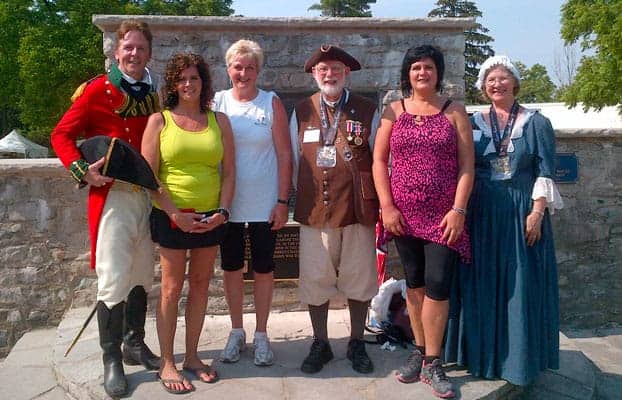With his big shades, black shirts, sparkling neckwear and enormous wave of Brylcreemed hair, there has always been something about Roy Orbison that suggests a slightly toned-down Elvis Presley. No surprise, then, that tribute artist Roy LeBlanc came to The Voice by way of The King.
“I’ve been doing Elvis now for 17 years, and after 10 years of that, we wanted to kind of branch out and do different stuff other than a straight Elvis show,” said LeBlanc, who is performing at the Commercial Tavern on Sunday.
“Not only that, but in the last 10 years, there have been a lot more guys getting into Elvis – every town seems to have their local Elvis guy – so we wanted to diversify a little bit, and be able to offer more when we did a show.”
Leblanc (who also performs as Tom Jones and Johnny Cash) estimates that hundreds of hours went into learning Orbison’s songs and mannerisms. During the research and rehearsal process, the differences between Presley and his new subject proved instructive and challenging.
![Tribute artist Roy LeBlanc came to the “Pretty Woman” legend after 10 years portraying Elvis. He’ll be accompanied by the Memphis Cats when he takes to the stage in Maryhill June 30.[submitted]](https://www.observerxtra.com/content/images/wp-content/uploads/2013/06/arts1.jpg)
“The hardest thing is that Roy really performed with his voice and the music, as opposed to a visual performance,” he said. “With Elvis you move around, and as much of the show is what you’re doing on stage in addition to what you’re singing. Roy Orbison is just a pure vocalist. They say the eyes can fool the ears a bit, so if the notes aren’t perfect …”
He added, “The biggest thing was learning how to breathe properly. Roy Orbison was an anomaly, because you were watching him onstage and he was hitting all these great, big notes, but he looked really so effortless, like he wasn’t even trying.”
To the layman, Orbison is mostly known for his song “Pretty Woman,” and the innumerable karaoke performances and Julia Roberts movies it spawned. But to his peers, he was one of the most respected vocalists and songwriters in the world. It is a testament to the high esteem he was held in that Orbison toured with the Beatles, joined Bob Dylan, George Harrison, and Tom Petty in the Traveling Wilburys, and counted among his fans a certain entertainer named Elvis Presley.
When asked what these artists saw in Orbison, LeBlanc speculated it was “his experience, his songwriting ability, and certainly his vocals. You hear in the songs that they wrote as the Wilburys, the band does the body of the song and then Roy will come in on all the choruses and really push them home.”
In addition to the deathless “Pretty Woman,” LeBlanc’s Orbison show will cover the Big O’s entire career, with such songs as Only the Lonely, Crying, Running Scared, In Dreams, the Wilburys hit Handle With Care, and You Got It, which topped charts after Orbison’s death in 1988 at age 52. In other words, a lineup designed for both the stalwart fan and the Orbison neophyte.
“When we do the Roy Orbison show, the diehard Orbison fans come out of the woodwork,” LeBlanc said. “There are a lot more fans out there who have deep respect for what Roy did than people would even believe.”
But even though Orbison fans can expect to be reminded of their departed hero, LeBlanc vows to bring his own spin on the legend.
“I learned a long time ago when I first started doing Elvis that if you go up there and say every little thing that Elvis said, it gets very old. People have seen it before, and it was done by the real guy.”
He added, “You’re better to keep a bit of your own personality and roll with what’s going on in the showroom that day, rather than just repeat banter.”
LeBlanc takes the stage with Bill Culp and the Memphis Cats at the Commercial Tavern (1303 Maryhill Rd.) on June 30 at 3 p.m. Tickets are $15, and can be purchased by calling 519-648-3644, or at www.commercialtavern.com.









